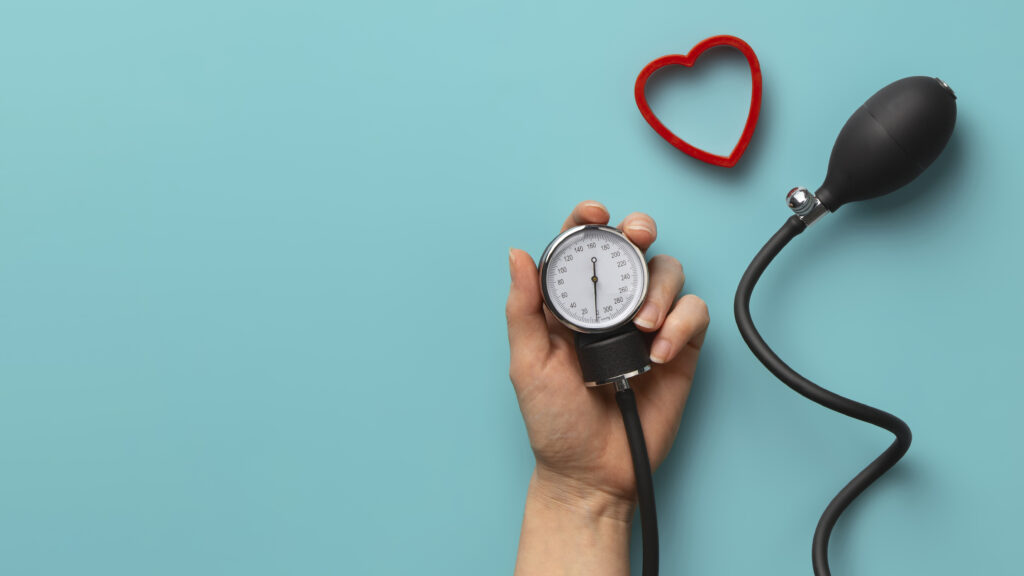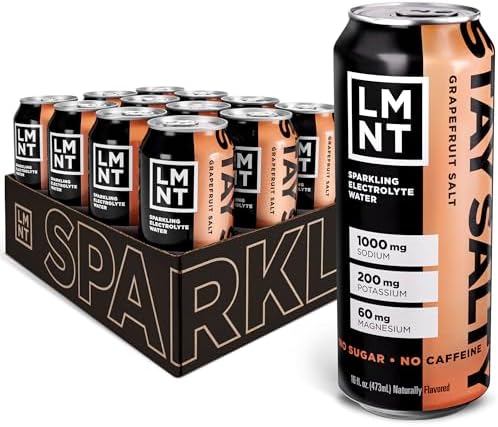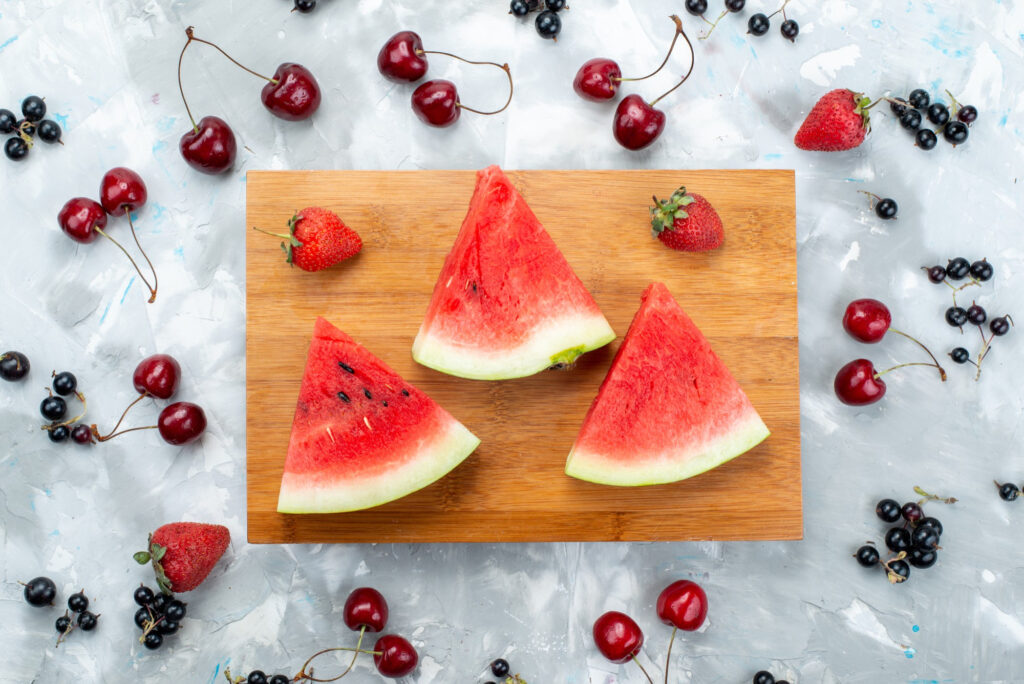Dehydration and blood pressure are intricately linked in ways that might surprise you. When your body lacks sufficient water, it sets off a cascade of physiological responses that can significantly impact your cardiovascular system.
Let’s explore the fascinating relationship between hydration and hypertension, uncovering the truth behind this often misunderstood connection.
The Body’s Response to Dehydration
When you become dehydrated, even slightly, your body activates a series of mechanisms designed to maintain blood volume and ensure vital organs receive adequate blood flow. This internal emergency system kicks into high gear, with your body working overtime to compensate for the lack of fluids.
The Renin-Angiotensin-Aldosterone System
One of the primary ways your body responds to dehydration is through the activation of the renin-angiotensin-aldosterone system (RAAS). This complex hormonal system plays a crucial role in regulating blood pressure and fluid balance.
When dehydration sets in, your kidneys release renin, an enzyme that starts a chain reaction ultimately leading to the production of angiotensin II and aldosterone. Angiotensin II is a powerful vasoconstrictor, causing your blood vessels to narrow.
This narrowing increases peripheral resistance in your circulatory system, which in turn raises blood pressure.
Think of it like squeezing a garden hose – the same amount of water flowing through a smaller opening creates more pressure. This is essentially what’s happening in your blood vessels when angiotensin II is at work.
Angiotensin II also stimulates the release of aldosterone, a hormone that signals your kidneys to keep sodium. And where sodium goes, water follows.
This helps to increase blood volume, another factor that can contribute to elevated blood pressure.
The Role of Vasopressin
Adding to this complex picture is vasopressin, also known as antidiuretic hormone (ADH). When your body senses dehydration, it releases vasopressin, which has a dual effect: it causes your kidneys to conserve water and constricts blood vessels.
While this helps maintain blood pressure, it can also contribute to it’s elevation.

The Complexity of Dehydration and Blood Pressure
The relationship between dehydration and blood pressure isn’t a simple, linear one. While mild to moderate dehydration tends to increase blood pressure, severe dehydration can actually lead to a dangerous drop in blood pressure.
This occurs when the body has lost so much fluid that it can no longer maintain adequate blood volume, potentially leading to hypovolemic shock – a life-threatening condition where organs don’t receive enough blood to function properly.
Individual Variations
The effects of dehydration on blood pressure can vary significantly among people. Factors such as age, overall health status, and the presence of underlying conditions all play a role in how our bodies respond to dehydration.
For instance, older adults may be more susceptible to dehydration-induced hypertension because of age-related changes in thirst perception and kidney function. Their bodies may not signal thirst as effectively, leading to more frequent episodes of dehydration.
Chronic Dehydration and Long-Term Hypertension
Chronic mild dehydration is an often-overlooked factor that may contribute to long-term hypertension. A study published in the American Journal of Hypertension in 2015 found that proper hydration was associated with a reduced risk of hypertension in middle-aged and older adults.
This suggests that maintaining adequate hydration over time may play a crucial role in blood pressure management. The added effects of chronic mild dehydration could potentially lead to sustained elevations in blood pressure, contributing to the development of hypertension over time.
Clinical Implications
The impact of dehydration on blood pressure has significant implications for both clinical practice and everyday health management. For healthcare providers, it’s crucial to consider a patient’s hydration status when measuring blood pressure, as dehydration could lead to artificially elevated readings.
This is particularly important in settings where patients may be fasting or have limited access to fluids, such as before medical procedures or in hospital environments. Accurate blood pressure readings are essential for proper diagnosis and treatment, so accounting for hydration status can help prevent misdiagnosis or unnecessary medication adjustments.
Managing Hypertension Through Hydration
For people managing hypertension, maintaining proper hydration is an essential component of blood pressure control. However, it’s not as simple as just drinking more water.
The timing and source of fluid intake can also play a role.
Some studies have shown that drinking water shortly before blood pressure measurements can temporarily lower readings in some people. This phenomenon, known as acute water-induced blood pressure reduction, highlights the dynamic nature of blood pressure and it’s responsiveness to hydration status.
It’s worth noting that while proper hydration is important for blood pressure management, overhydration can also pose risks, particularly for people who have certain heart or kidney conditions. As with many aspects of health, balance is key.
Practical Tips for Maintaining Proper Hydration
To maintain proper hydration and support healthy blood pressure levels, consider the following tips:
- Don’t wait until you feel thirsty to drink water. By the time you feel thirsty, you may already be mildly dehydrated. Make a habit of drinking water regularly throughout the day.
- Pay attention to the color of your urine. Pale yellow urine generally shows good hydration, while dark yellow or amber-colored urine may signal dehydration.
Use this as a simple visual cue to gauge your hydration status.
- Increase your fluid intake during hot weather, when exercising, or if you’re ill. These situations can increase fluid loss, so it’s important to compensate by drinking more.
- Eat water-rich foods to supplement your fluid intake. Fruits and vegetables like watermelon, cucumbers, and tomatoes can contribute significantly to your daily fluid intake.
- Be mindful of diuretics like caffeine and alcohol. These substances can increase fluid loss, so balance their consumption with extra water intake.
- Set reminders to drink water throughout the day. If you have trouble remembering to drink water, try setting reminders on your phone or using a water tracking app.
- Consider your personal needs. Factors like climate, physical activity level, and overall health can affect your hydration requirements.
Consult with a healthcare provider to decide the right amount of fluid intake for your specific situation.
The Bigger Picture: Hydration and Cardiovascular Health
Understanding the relationship between dehydration and blood pressure empowers us to take control of our cardiovascular health. By maintaining proper hydration, we can support our body’s natural blood pressure regulation mechanisms and potentially reduce our risk of hypertension.
Remember, while dehydration can cause a temporary increase in blood pressure, severe dehydration can have the opposite effect. This underscores the importance of balanced hydration in maintaining overall cardiovascular health.
As we continue to unravel the complexities of human physiology, one thing becomes clear: the simple act of staying hydrated can have profound effects on our health. The next time you reach for that glass of water, remember – you’re not just quenching your thirst, you’re supporting your entire cardiovascular system.
The Role of Hydration in Overall Health
While we’ve focused primarily on the relationship between dehydration and blood pressure, it’s important to recognize that proper hydration plays a crucial role in many other aspects of health. Adequate fluid intake is essential for:
- Regulating body temperature: Water helps dissipate heat through sweating, preventing overheating.
- Supporting digestion: Proper hydration aids in the breakdown and absorption of nutrients.
- Maintaining cognitive function: Even mild dehydration can affect mood, concentration, and mental performance.
- Promoting kidney health: Adequate fluid intake helps flush out waste products and toxins through urine.
- Lubricating joints: Water is a key component of synovial fluid, which cushions and protects joints.
- Supporting skin health: Proper hydration helps maintain skin elasticity and may contribute to a more youthful appearance.
Given these wide-ranging benefits, maintaining proper hydration should be considered a basic aspect of overall health and wellness, not just for blood pressure management.
Hydration Strategies for Different Populations
While the general principles of hydration apply to everyone, certain populations may need to pay special attention to their fluid intake:
Older Adults
As we age, our thirst sensation reduces, making it easier to become dehydrated without realizing it. Older adults should make a conscious effort to drink water regularly, even if they don’t feel thirsty.
They may also benefit from setting reminders or keeping a water bottle visible as a cue to drink.
Athletes and Active Individuals
People who engage in regular physical activity or live in hot climates lose more fluids through sweat and need to be particularly vigilant about hydration. Electrolyte-rich beverages may be useful for replacing both fluids and essential minerals lost through sweating.
Pregnant and Breastfeeding Women
These people have increased fluid needs to support the growing fetus or milk production. They should aim to drink water frequently throughout the day and may need to increase their intake beyond their pre-pregnancy levels.
People with Certain Medical Conditions
Individuals with conditions like diabetes, kidney disease, or heart failure may need to carefully watch their fluid intake. In some cases, fluid restrictions may be necessary, while in others, increased intake may be recommended. It’s crucial for these people to work closely with their healthcare providers to decide the right hydration strategy.
The Science of Hydration: Beyond Water
While water is the most obvious and important source of hydration, it’s not the only way to maintain fluid balance in the body. Let’s explore some other aspects of hydration science:
Electrolytes and Hydration

Electrolytes, such as sodium, potassium, and magnesium, play a crucial role in maintaining proper hydration. These minerals help regulate fluid balance within and between cells.
In some cases, particularly during intense exercise or in hot conditions, it may be useful to consume electrolyte-rich beverages to replace both fluids and minerals lost through sweat.
The Role of Food in Hydration
Many foods, especially fruits and vegetables, contain significant amounts of water and can contribute to your daily fluid intake. Some examples include:

- Watermelon (92% water)
- Cucumbers (95% water)
- Tomatoes (94% water)
- Strawberries (91% water)
- Lettuce (95% water)
Incorporating these water-rich foods into your diet can help support overall hydration.
Hydration and Sleep
Proper hydration is important for good sleep quality, but it’s a delicate balance. Drinking too much water close to bedtime can lead to nighttime awakenings for bathroom trips, disrupting sleep.
On the other hand, going to bed dehydrated can lead to dry mouth, snoring, and potentially lower quality sleep.
Finding the right balance of hydration throughout the day can contribute to better sleep at night.
Hydration Myths Debunked
There are many myths and misconceptions surrounding hydration. Let’s address a few common ones:
Myth 1: You need to drink 8 glasses of water a day
The “8×8 rule” (eight 8-ounce glasses per day) is often cited, but there’s no scientific basis for this specific amount. Hydration needs vary based on factors like body size, activity level, climate, and overall health.
It’s more important to pay attention to your body’s signals and the color of your urine than to aim for an arbitrary number.
Myth 2: If you’re thirsty, you’re already dehydrated
While thirst is indeed a sign that your body needs fluids, it doesn’t necessarily mean you’re severely dehydrated. Thirst is your body’s way of prompting you to drink before dehydration becomes significant. However, relying solely on thirst may not be enough, especially for older adults or during intense physical activity.
Myth 3: Coffee and tea don’t count towards hydration
While caffeine does have a mild diuretic effect, the fluid in coffee and tea more than makes up for it. These beverages can contribute to your daily fluid intake, although water stays the best choice for hydration.
Myth 4: You can’t drink too much water
While uncommon, it is possible to drink too much water, leading to a condition called hyponatremia, where sodium levels in the blood become dangerously diluted. This is most likely to occur during endurance sports or in people with certain medical conditions. For most people, however, the kidneys are very effective at excreting excess water.
Hydration and Disease Prevention
Proper hydration may play a role in preventing or managing various health conditions:
Kidney Stones
Staying well-hydrated can help prevent the formation of kidney stones by diluting stone-forming substances in the urine and flushing out small crystals before they can grow into larger stones.
Urinary Tract Infections
Adequate fluid intake helps flush bacteria from the urinary tract, potentially reducing the risk of urinary tract infections.
Constipation
Proper hydration can help prevent constipation by softening stools and promoting regular bowel movements.
Headaches
Some types of headaches, particularly those related to dehydration, may be prevented or alleviated by maintaining good hydration.
Skin Health
While the effects of hydration on skin health are sometimes overstated, proper fluid intake can help maintain skin elasticity and may contribute to a more youthful appearance.
The Future of Hydration Research
As our understanding of the human body continues to evolve, so too does our knowledge of hydration and it’s effects on health. Future research in this area may focus on:
- Personalized hydration strategies: Developing more precise recommendations based on individual factors like genetics, microbiome composition, and lifestyle.
- Advanced hydration monitoring: Creating non-invasive, real-time methods to assess hydration status more accurately than current techniques.
- Hydration and cognitive function: Further exploring the links between hydration status and mental performance, mood, and long-term cognitive health.
- Hydration in extreme environments: Studying optimal hydration strategies for astronauts, deep-sea divers, and others in challenging environments.
- Hydration and disease: Investigating the potential role of hydration in preventing or managing chronic diseases beyond it’s known effects on blood pressure and kidney function.
Frequently Asked Questions
How much water should I drink daily to maintain healthy blood pressure?
There’s no one-size-fits-all answer, as individual needs vary. However, aiming for about 8-10 cups (64-80 ounces) of fluids per day is a good starting point for most adults.
Monitor your urine color and adjust your intake accordingly.
Can drinking water immediately lower high blood pressure?
Drinking water can cause a temporary decrease in blood pressure in some people, but it’s not a reliable method for managing chronic hypertension. Consistent, long-term hydration is more important for overall blood pressure management.
Does coffee dehydrate you and raise blood pressure?
While caffeine can have a mild diuretic effect, the fluid in coffee more than compensates for this. Moderate coffee consumption (3-4 cups per day) doesn’t significantly impact hydration status for most people.
However, caffeine can cause a temporary spike in blood pressure, especially in people who are not regular coffee drinkers.
Are sports drinks better than water for hydration?
For most people engaged in moderate activity, water is sufficient for hydration. Sports drinks can be useful during intense, prolonged exercise or in very hot conditions where electrolyte replacement is necessary.
However, be mindful of the added sugars in many sports drinks.
How can I tell if I’m dehydrated?
Common signs of dehydration include dark urine, dry mouth, fatigue, dizziness, and decreased urine output. Thirst is also a sign, but it’s best not to rely solely on thirst as an indicator, especially for older adults.
Can dehydration cause long-term damage to blood vessels?
Chronic dehydration may contribute to the development of hypertension over time, which can lead to blood vessel damage. However, the effects are generally reversible with proper hydration and blood pressure management.
Is it possible to drink too much water?
While rare, it is possible to drink too much water, leading to a condition called hyponatremia. This is most likely to occur during endurance sports or in people with certain medical conditions.
For most people, the kidneys effectively excrete excess water.
How does alcohol affect hydration and blood pressure?
Alcohol is a diuretic, meaning it increases urine production and can lead to dehydration. It can also cause a temporary increase in blood pressure.
Moderate alcohol consumption (up to one drink per day for women and up to two for men) is generally considered safe for most adults, but those with hypertension should ask their healthcare provider.
Can certain foods help with hydration?

Yes, many fruits and vegetables have high water content and can contribute to your daily fluid intake. Examples include watermelon, cucumbers, tomatoes, and strawberries.
These foods also provide essential nutrients and can be part of a healthy diet for blood pressure management.
How does hydration affect kidney function and blood pressure?
Proper hydration is crucial for kidney function. The kidneys play a key role in regulating blood pressure, and dehydration can stress these organs, potentially contributing to hypertension.
Staying well-hydrated helps the kidneys filter waste products and maintain fluid balance in the body.
Key Takeaways
- Mild to moderate dehydration can cause a temporary increase in blood pressure through the activation of compensatory mechanisms like the renin-angiotensin-aldosterone system.
- Severe dehydration can lead to a dangerous drop in blood pressure, highlighting the importance of balanced hydration.
- Chronic mild dehydration may contribute to long-term hypertension, emphasizing the need for consistent, adequate fluid intake.
- Individual factors like age, overall health, and underlying conditions affect how dehydration impacts blood pressure.
- Proper hydration is essential for maintaining healthy blood pressure levels and supporting overall cardiovascular health.
- Hydration needs vary among individuals, and it’s important to consider factors like activity level, climate, and personal health when determining fluid intake.
- While water is the best choice for hydration, other beverages and water-rich foods can also contribute to daily fluid intake.
- Maintaining proper hydration has wide-ranging health benefits beyond blood pressure regulation, including supporting digestion, cognitive function, and kidney health.
Please enjoy more natural health articles at www.naturaledgesupplements.com